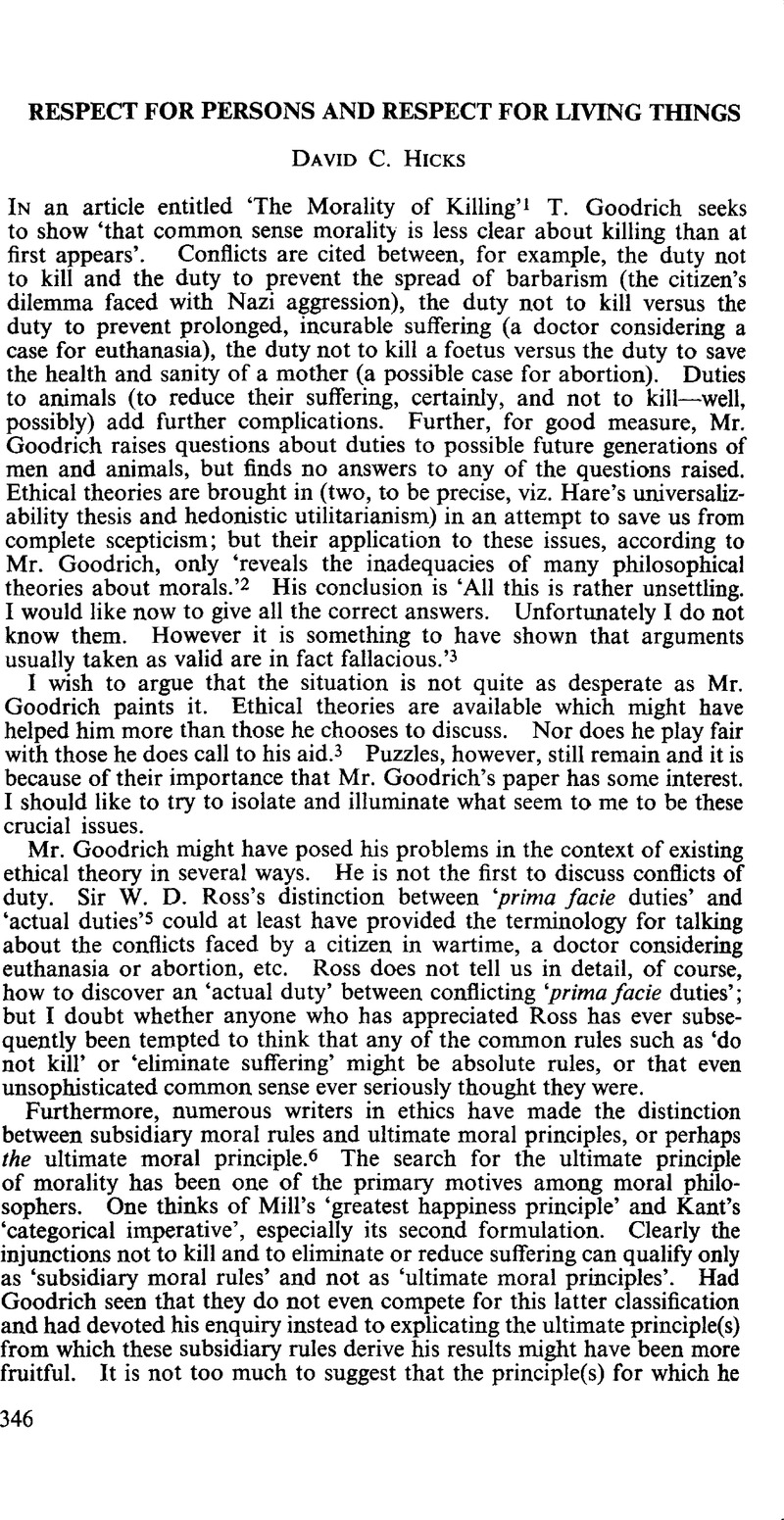Published online by Cambridge University Press: 25 February 2009

1 Philosophy, Vol. XLIV, No. 168 (April, 1969), pp. 127–139Google Scholar.
2 Ibid., p. 127.
3 Ibid., p. 139.
4 In considering the case against blood sports, Goodrich, following Hare, suggests the hunter should ask himself, ‘How would I like to be that fox?’ Because Goodrich doubts whether it makes sense for a man to conceive of himself as a fox, etc., he considers the universalizability thesis fails. But there are other ways of putting the universalizability thesis that are immune to this criticism.
Goodrich calls in hedonism to try to determine our duty to future generations. Because of the well known problems about measuring or adding happiness he considers we cannot sensibly talk about increasing a totality of happiness. Admitting the problem about measuring happiness, still it is not clear that we cannot devise means of ranking happiness in ways analogous to those of ranking intelligence. It certainly makes sense to talk of taking steps to increase the intelligence of the population. The intelligibility of talk about the happiness of the population is somewhat similar.
5 Ross, W. D., The Right and the Good (Clarendon Press, Oxford, 1930), pp. 19–20Google Scholar.
6 Cf. J. S. Mill, Utilitarianism (Everyman's Library edition), pp. 22–3.
7 Op. cit., p. 28.
8 Maclagan, W. G., ‘Respect for Persons as a Moral Principle’ in Philosophy, Vol. XXXV, Nos. 134, 135 (July and October, 1960), pp. 193–217, and pp. 289–305CrossRefGoogle Scholar.
9 Downie, R. S. and Telfer, Elizabeth, Respect for Persons (Allen & Unwin, 1969)Google Scholar.
10 Op. cit., p. 128.
11 Downie and Telfer, op. cit., pp. 35–6.